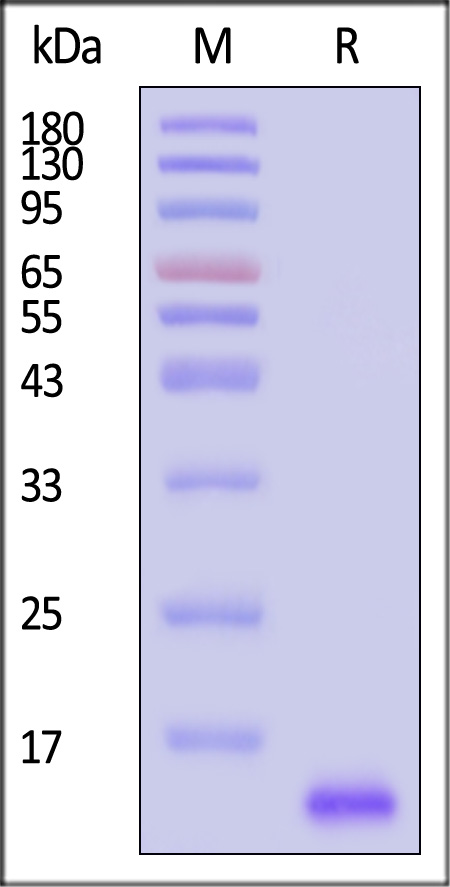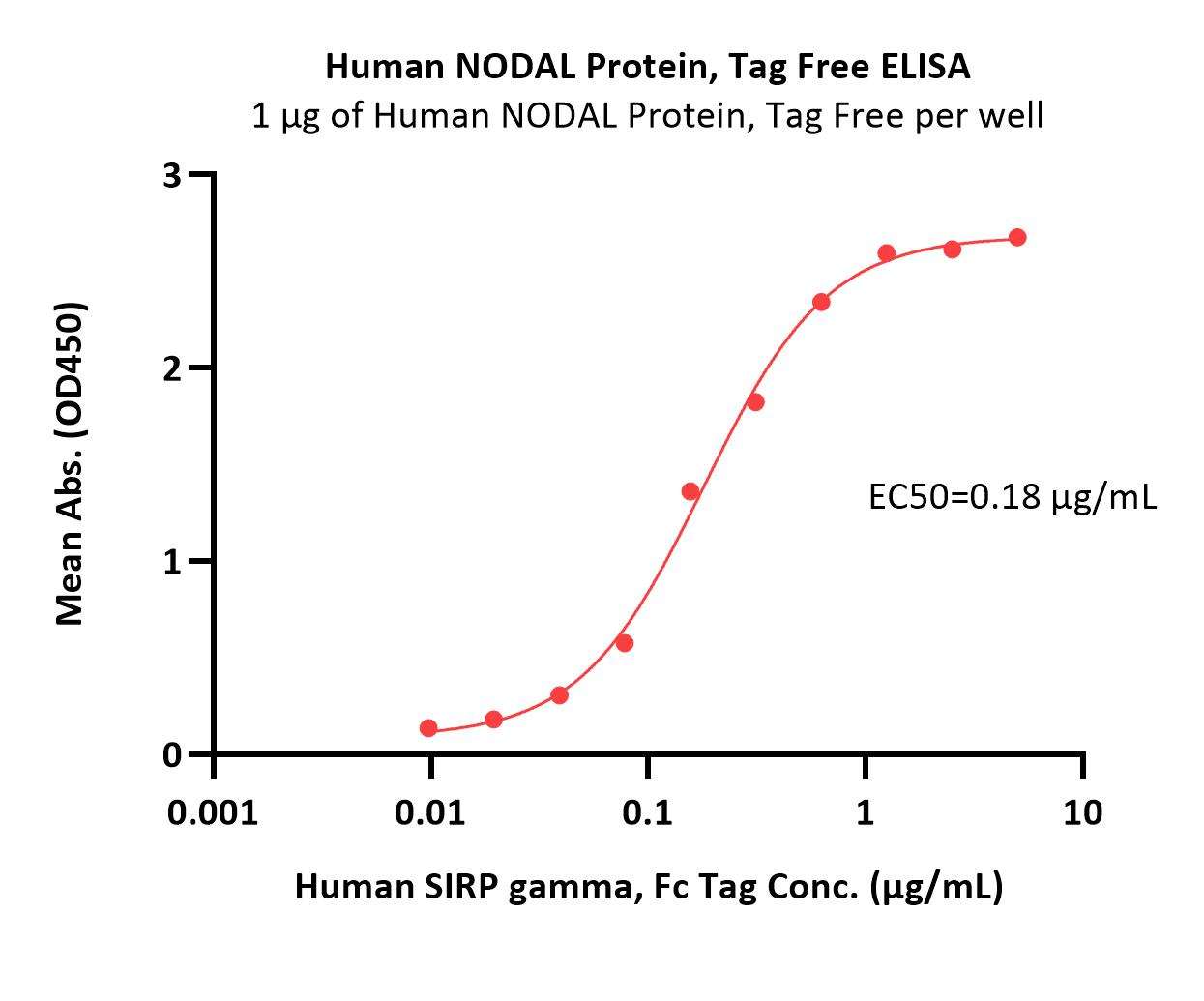分子别名(Synonym)
HTX5
表达区间及表达系统(Source)
Human NODAL Protein, Tag Free (NOL-H5133) is expressed from E. coli cells. It contains AA His 238 - Leu 347 (Accession # Q96S42).
Predicted N-terminus: Met
Request for sequence
蛋白结构(Molecular Characterization)

This protein carries no "tag".
The protein has a calculated MW of 12.9 kDa. The protein migrates as 14-15 kDa when calibrated against Star Ribbon Pre-stained Protein Marker under reducing (R) condition (SDS-PAGE).
内毒素(Endotoxin)
Less than 1.0 EU per μg by the LAL method.
纯度(Purity)
>90% as determined by SDS-PAGE.
制剂(Formulation)
Lyophilized from 0.22 μm filtered solution in 10 mM Sodium citrate, pH3.0 with trehalose as protectant.
Contact us for customized product form or formulation.
重构方法(Reconstitution)
Please see Certificate of Analysis for specific instructions.
For best performance, we strongly recommend you to follow the reconstitution protocol provided in the CoA.
存储(Storage)
For long term storage, the product should be stored at lyophilized state at -20°C or lower.
Please avoid repeated freeze-thaw cycles.
This product is stable after storage at:
- -20°C to -70°C for 12 months in lyophilized state;
- -70°C for 3 months under sterile conditions after reconstitution.
电泳(SDS-PAGE)

Human NODAL Protein, Tag Free on SDS-PAGE under reducing (R) condition. The gel was stained with Coomassie Blue. The purity of the protein is greater than 90% (With Star Ribbon Pre-stained Protein Marker).
活性(Bioactivity)-ELISA

Immobilized Human NODAL Protein, Tag Free (Cat. No. NOL-H5133) at 10 μg/mL (100 μL/well) can bind Human SIRP gamma, Fc Tag (Cat. No. SIG-H5253) with a linear range of 0.01-0.625 μg/mL (QC tested).
Protocol
背景(Background)
This gene encodes a secreted ligand of the TGF-beta (transforming growth factor-beta) superfamily of proteins. Ligands of this family bind various TGF-beta receptors leading to recruitment and activation of SMAD family transcription factors that regulate gene expression. The encoded preproprotein is proteolytically processed to generate the mature protein, which regulates early embryonic development. This protein is required for maintenance of human embryonic stem cell pluripotency and may play a role in human placental development. Mutations in this gene are associated with heterotaxy, a condition characterized by random orientation of visceral organs with respect to the left-right axis. [provided by RefSeq, Aug 2016]























































 膜杰作
膜杰作 Star Staining
Star Staining













